While Eurocentric beauty standards might seem like something limited to the cover of a magazine, they clearly permeate throughout society — from places of work and education to social dynamics and internal worth. If you're unaware, Eurocentric beauty standards refers to a beauty standard that favors European features, such as big blue eyes, small noses, straight hair, and lighter skin.
And the messaging to conform to Eurocentric beauty standards starts young. Children in elementary school feel the pressure to fit in with their peers or even learn at home how to assimilate from family. So, to platform this issue, we recently asked people of color in the BuzzFeed Community to talk about how they've conformed to Eurocentric beauty standards and why. Here are 16 of their stories:
1. "I'm Chinese and grew up predominantly around white people. I tried so hard to make my eyes appear wider — from not smiling with my teeth so that my eyes weren't so 'squinty' to every makeup 'hack' possible in middle and high school — only for 'elongated eyes' to become a 'trendy' makeup look in the late 2010s. Since I've been in my 20s, I've been trying to embrace my eye shape and size. While I'm still occasionally self-conscious about it, I don't want to continue conforming to beauty standards that don't make me feel the best about myself."
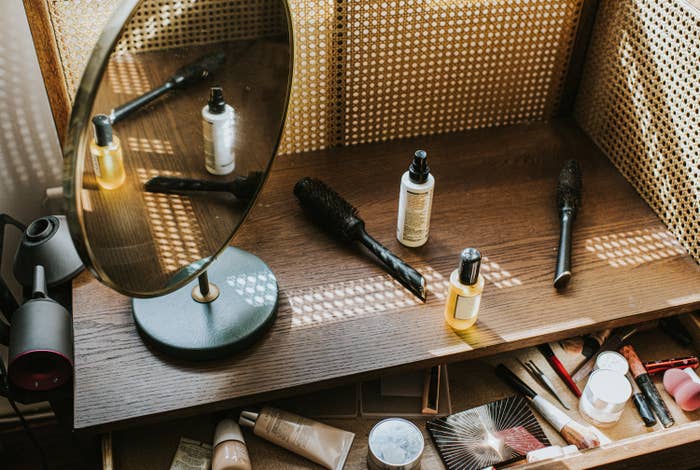
2. "I'm Filipino, and I only ever use whitening and/or brightening soaps, like Dove White and papaya soap. The colorism here is so bad, it's more difficult to find products that don't claim to be whitening or brightening than do."
3. "I started getting relaxers when I was 11 years old. I pretty much got one every month, give or take, until I was about 20. My nana would give them to me, my sister, and my mother. Whenever she'd do our hair, she'd always make sure to let me know that my hair was the 'worst' to deal with, making me hate my 4c pattern more than I already did. I'd get my relaxer, flat iron the hell out of my hair, and then use a hot comb on the ends and edges. I used to wish I had straight hair or the wavy-curls some mixed women have. Once I finally stopped getting relaxers, my hair was so damaged. I wore it in box braids until I decided to cut it all off when I was 22. Five years later, I still have my short hair."
"It took a while for me to start loving my hair, but at 27 years old, I finally got there."
4. "I'm Black, white, and Native American. My facial features are very prominently Native American (I have a very strong jawline, high cheekbones, etc.), but my hair is a pure afro that grows super long. For years, I chemically straightened and flat-ironed the crap out of it. It was so damaged, but I didn’t stop because I wanted long, pretty, straight hair like all the other girls in my school. A few years ago, I finally had cut most of it off due to damage, and it was kind of freeing. I still use relaxers because I don't have the time or energy to deal with my full afro, but it still leaves my hair with very full curls that I no longer feel the need to straighten. Ironically, I've gotten more pressure now to go fully natural now that afros are being embraced. I ignore it because it's my hair, and I do what makes me happy."
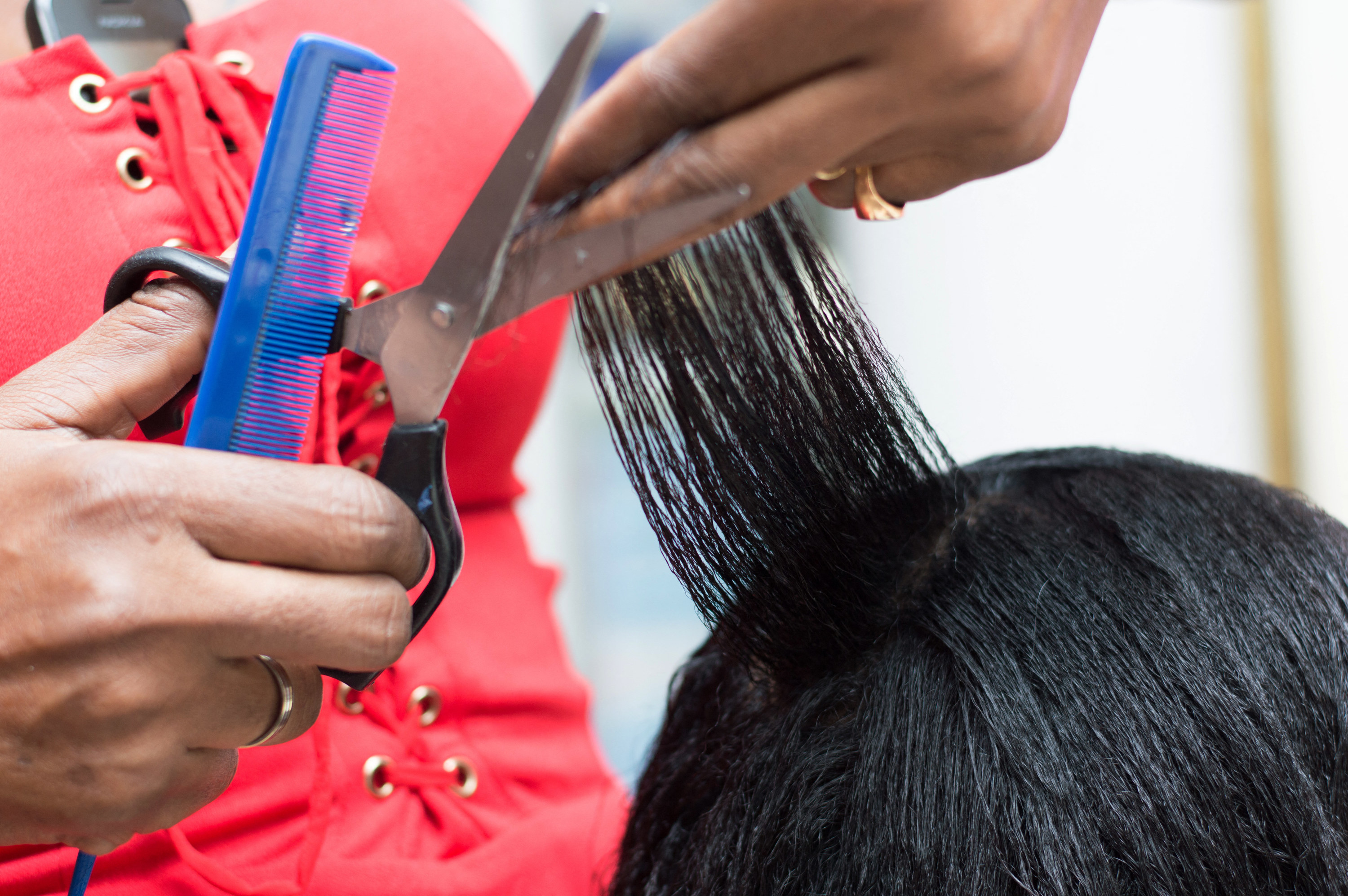
5. "I'm Peruvian and look very much like my Incan ancestors. As a kid, I went to a mostly white private school and wouldn't leave the house without straightening my hair because I thought my natural hair was 'messy' and 'wild.' I'd also bleach any body hair I couldn't shave because I'd get teased mercilessly. Now, at 30 years old, I bleach nothing and love my nose, my natural hair, and everything that makes me look unique."
"🥰"
6. "I started relaxing and straightening my hair when I was maybe 12 years old. My mother didn't pressure me into relaxing my hair, but she also didn't stop me or encourage me to embrace my natural hair texture. I really wish she had. When I was in my early 20s, I decided to go natural."
7. "I suffer severely from insecurity and low confidence. I grew up with my mom hating her Mexican features. She always yearned for a small nose and a slim face, and she projected those ideals onto me. She still tells me, 'You'd look so perfect with a small nose. It's all you need to fix.' She's had a nose job and lip fillers. But even when she's thousands of dollars in debt, I don't think it'll ever be enough until she looks like a photoshopped poster. She buys whitening soaps and made me use hair-lightening shampoo as a teen. I haven't exactly succumbed to Eurocentric beauty standards yet — I did save three years of birthday money for a nose job at 16 until I got cold feet — but I'll always look in the mirror and hate the bump on my nose and my prominent cheeks. I could barely take selfies growing up and still can't stand my side profile. I don't know if I'll ever be happy with myself, but so far, I've managed."
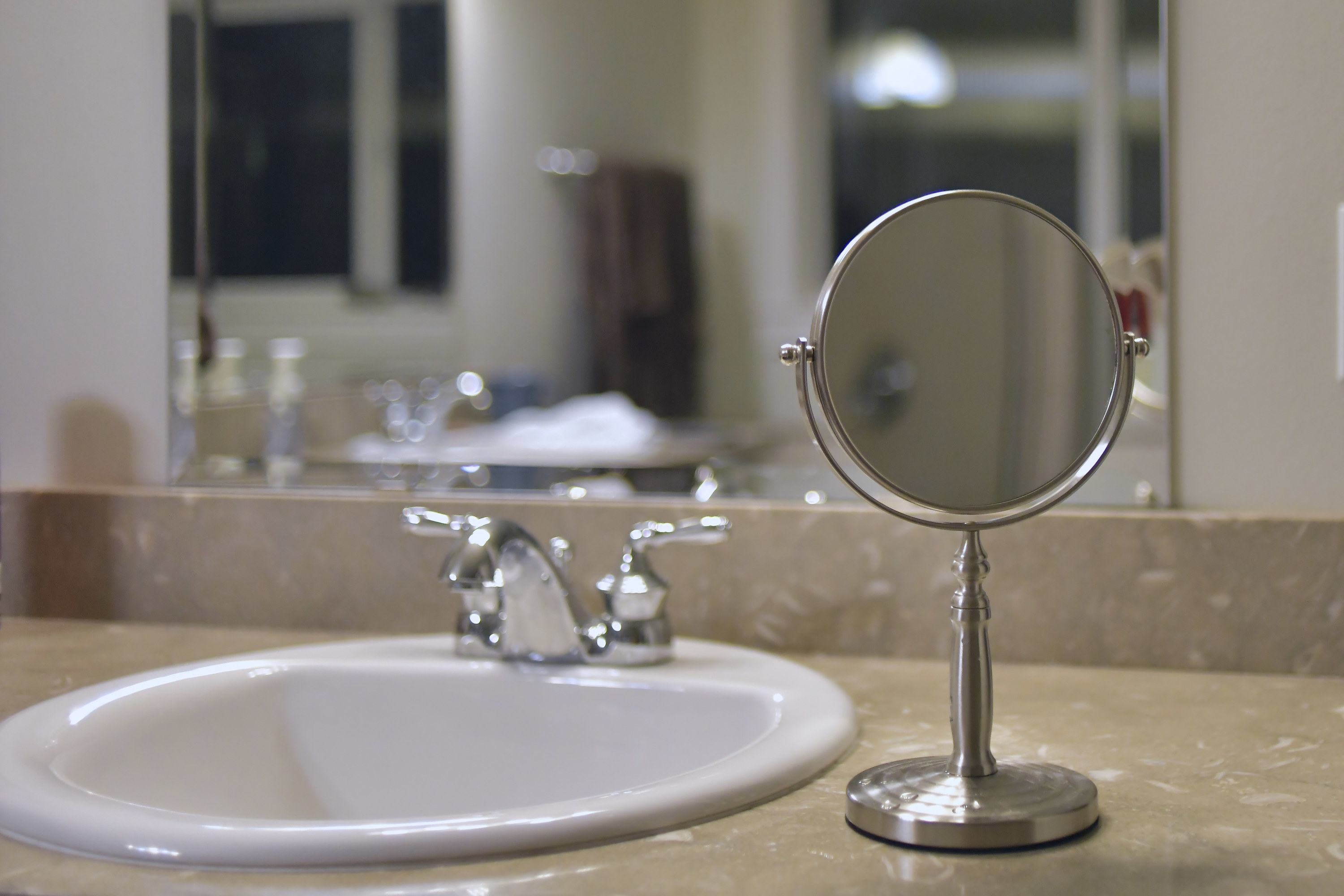
8. "I am half Asian and half American, and I grew up in Singapore. I purposefully stayed out of the sun for most of my life because, growing up, I always saw advertisements about being fair and lightening your skin tone. My mom would call me her 'little white child' because I avoided being outside. I never really did sports because I didn't like the idea of tanning, and most sports were outside. Once I finally moved to America, the opposite was true: Most Americans want to be tanner. Nevertheless, I was still of the Asian mindset that I needed to be fairer. It's still something I struggle with, and there is no real way to get over it."
"I am glad I have take such good care of my skin, but it has done enough damage to my mental health and awareness."
—Oh Hodor
9. "As a child, my mom and grandma always put my naturally wavy hair in tight buns and ponytails. During quarantine, I dyed my hair blonde and plucked my naturally thick eyebrows. Now, I'm trying to repair my horribly damaged hair and grow back my eyebrows."
10. "From the time I was 4 to the time I was 11, I'd beg my mother to let me straighten my hair. Even now, as I do my own hair, I still opt to straighten it, thinking it will be easier to maintain. It was always prominent on mainstream TV: Black women with straight hair being the more beautiful women in the room. I associated straight, sleek hair — though my hair was never as sleek as I wanted it to be — with beauty. So, for every picture day and every major event, I wanted my hair straightened."
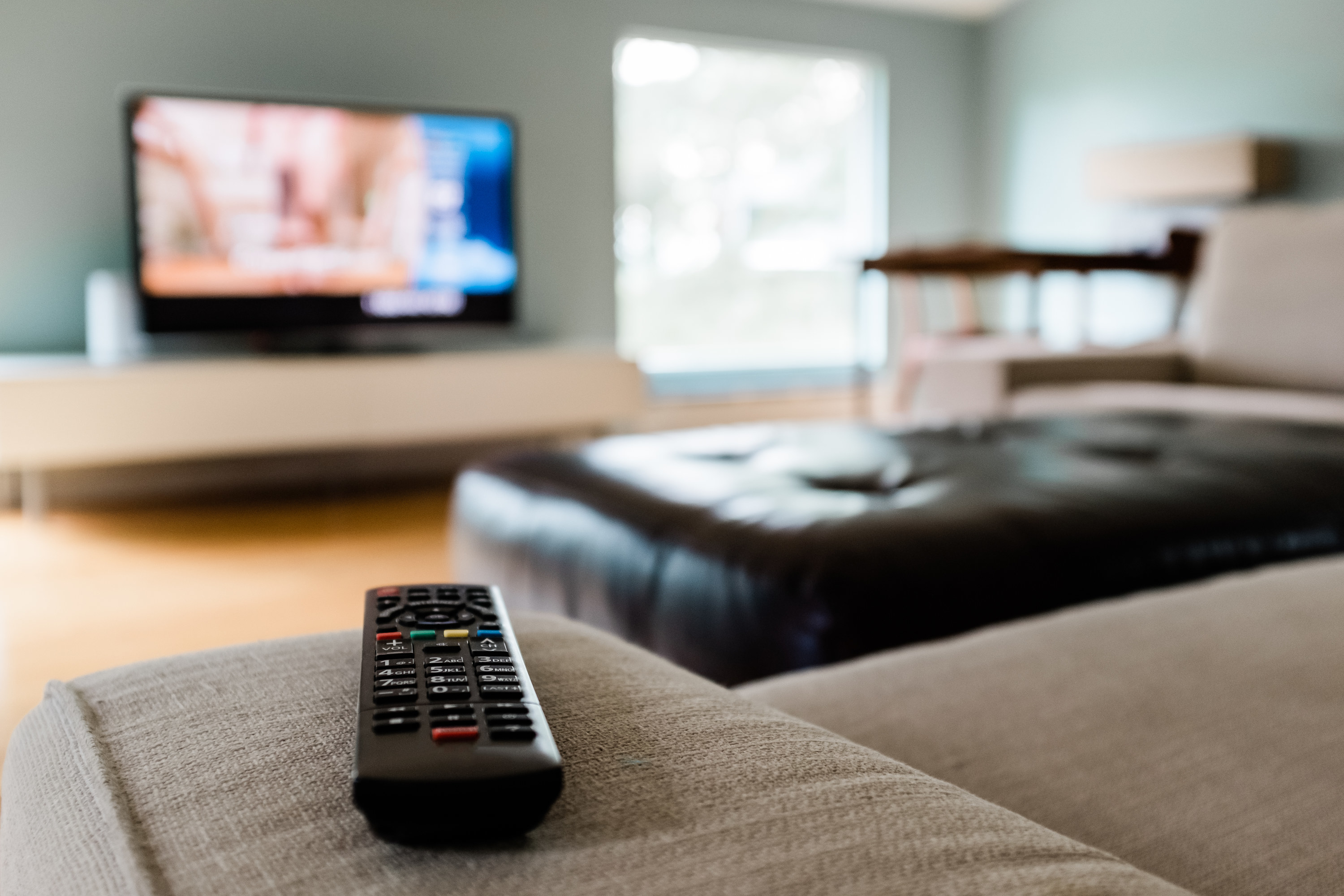
11. "I am mixed race (Black, Japanese, and Portuguese), so I have olive skin, thick eyebrows, and curly, black hair. For my sophomore English class, I had to do an interview as part of a project. My teacher pulled me aside to tell me I needed to straighten my hair, because my natural hair wasn't appropriate for my interview. Growing up, I was also surrounded by family members who straightened their hair, so I obliged."
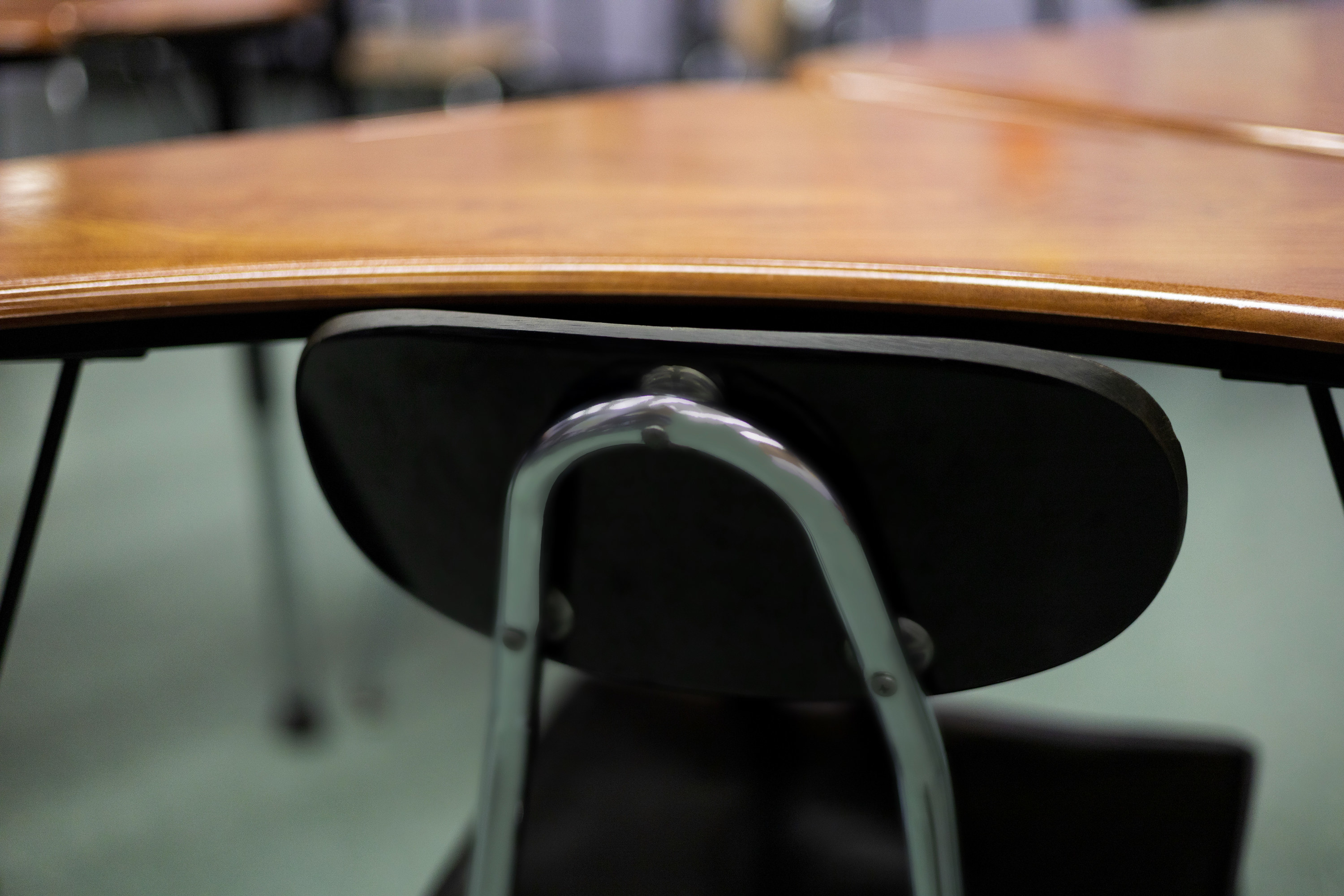
12. "I'm mixed white, Mexican, and Apache. My mom is fully white, and I was the only one of her kids to have super curly hair. She used to detangle it before school every day, drench it with water, and then drench it with hair spray while it was still wet so it would look straight at school. My dad (who I got my hair from) would call it a 'mop' or 'rats' nest.' My sisters all had straight or wavy hair, and one of them spread rumors about me at school that I never brushed my hair. I always brushed my hair, but that just makes curly hair worse. I didn't even realize my hair was curly until I was 20 years old because of how I'd been taught to wash and dry my hair (a quarter-sized drop of conditioner in the shower, no leave-in products, and brushing my hair dry). I've had strangers make rude comments about my hair while walking past me when I was a kid with full puff-ball hair going on."
"I also have full Mexican eyebrows. I was a preteen in the late 2000s, and I received unsolicited comments from my older siblings (who had the same brows!) and classmates when I started getting unibrow hairs. I found tweezers and basically had spider-leg thin eyebrows through all of middle school and high school. It did not look good. I grew them back out in college — around the same time as all the people who'd looked down on me for my brows started making theirs look thicker with makeup.
It's crazy how fashion swings back and forth like that. I wouldn’t have a problem with it if it didn’t give people the feeling they were obligated to harass me over it. My hair and brows are beautiful now that I don’t listen to anyone and have found products designed for my body.
My mom still thinks my hair would look like a 'better form of curly hair' if I used a hot iron to curl it and reduce frizz instead of wet styling. Frizz will always be on my head, and it’s okay! No, patting down the frizzy baby hairs with water will NOT make them stay down!"
—Anonymous, California
13. "I’m Indian, and I have thick, wavy/curly hair. I used to get made fun of in school — kids would call my hair a 'bush' or 'rats' nest.' They'd stick random items in my ponytail during class to see if they would stay. They'd also mock my prominent, angled nose, saying I probably got punched in the face as a baby. It all made me feel out of place and, frankly, just plain ugly. As a result, I've been ironing my own hair since I was 8 and have had two chemical straightening treatments done. I like my hair better now that I know how to take care of it, but I still don’t like my nose. I've wanted rhinoplasty since I was 6, and that hasn't changed. It's never intentional, but even now, there's always a bit of envy when I see someone with ideal, smooth, straight hair and a small, cute nose that actually fits on her face."
"Thanks for the image issues, media."
—SP
14. "I'm third-generation Latina and white-presenting. My journey wasn't as hard as others, but I do have excessive hair. The bullying started when I was 8 or 9 years old from children and adults. Harsh comments veiled as 'constructive support' hurt. When I was 16, I had my legs permanently lazered. For the best part of 20 years, I bleached the dark peach fuzz on my face (not just the mustache) at least once a week — until I could afford to have that lazered, too. The process left my face both dry and oily, so spots then became an issue. I'm 34 now and just starting to embrace my body as it is."
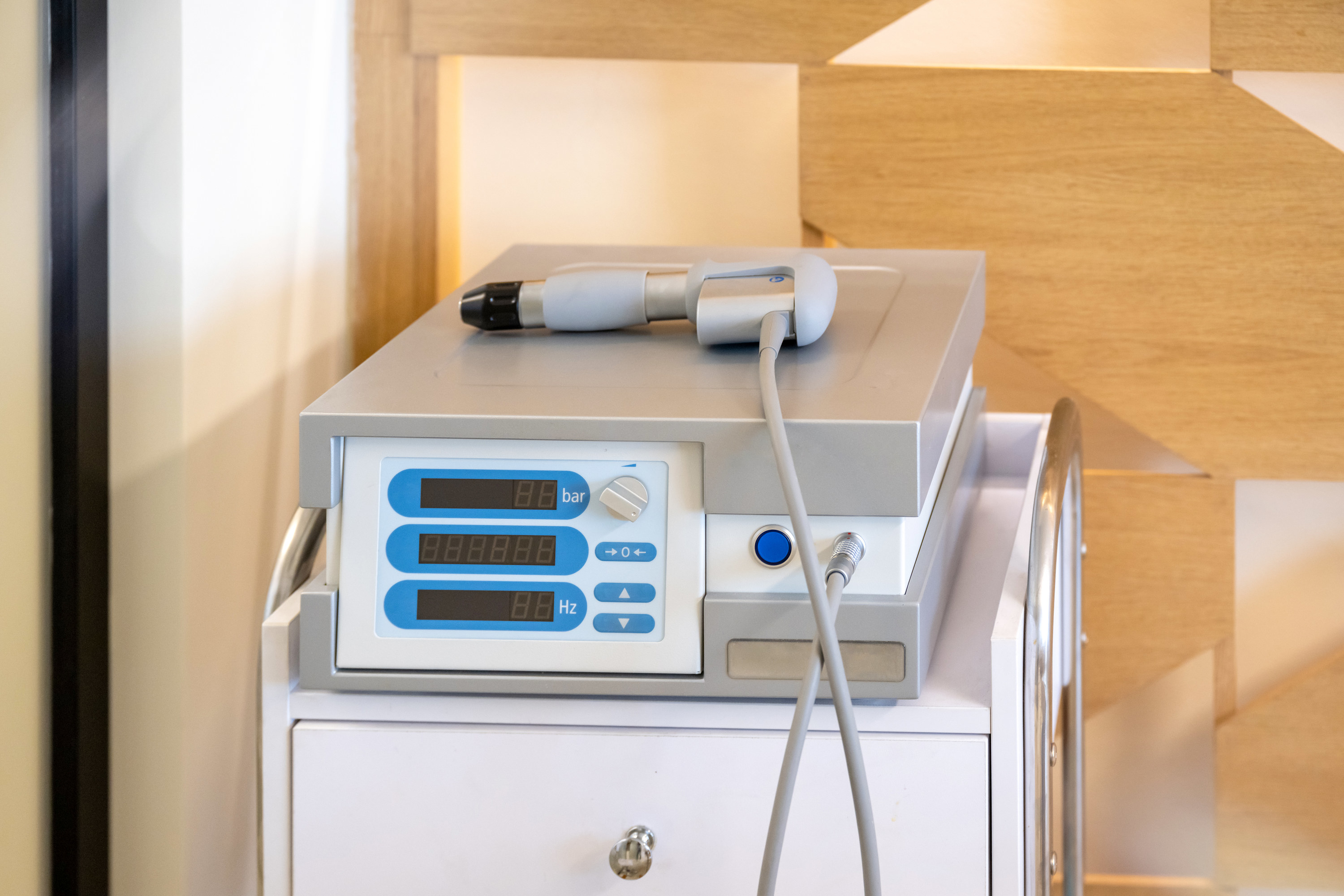
15. "I'm mixed Mediterranean. I have fielded 'what are you?' questions my whole life. When I was 13, I boycotted the sun for a summer. I wore long pants and shirts everywhere. I quit the swim team. I told everyone I was concerned about skin cancer, but really, I wanted to be as pale as I could. I wanted the othering to stop."
—Corina
16. "I have very curly hair (type 3b). Throughout most of my adolescence, I wore my hair straight. I would spend hours blow drying and straightening my hair. At around 17, I started getting keratin (chemical straightening) treatments multiple times a year to reduce frizz and make my hair straight or slightly wavy — like many of my curly-haired peers. In my later 20s, I started to think it'd be worth wearing my hair curly and growing out the keratin. I was never taught how to properly take care of my curls. Then, I learned how straightening my curls was conforming to Eurocentric beauty standards and connected to my own internalized antisemitism. When I wasn't able to get my next keratin treatment because of pandemic closures, I decided it was time to take the leap. I feel so much more empowered in wearing my hair naturally and more like myself."
"I found an amazing hair stylist who knows how to cut curly hair and helped me with products. After many YouTube tutorials, I found the right routine for me: Prose shampoo, conditioner, curl cream, and hair serum, as well as R&Co Pomade Mousse."
—Natalie, Illinois
